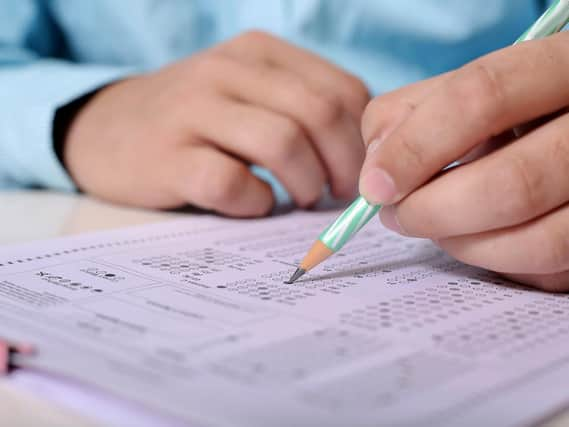'New A-level algorithm method is unfair to pupils who have already been disadvantaged by the Covid-19 pandemic' - viewpoint of a Rugby pupil


VIEWPOINT
Changes to how results are determined for this year's A-levels and GCSEs have caused uproar among many. Rugby High School Alice Richmond was one of many teenagers who received their A-levels last week. Here is her view on why the new algorithm method is unfair to pupils who have already been disadvantaged by the Covid-19 pandemic.
A-levels 2020 have started a debate that will last for decades. Will current year 13s set the precedent or pay the price?
Advertisement
Hide AdAdvertisement
Hide AdBeing an A-level student myself, I have experienced the fear of results day twice: my GCSE results day was worrying, and my A-level results day was petrifying. The last-minute changes made by the government, with little explanation as to how they would work, only added to the pressure. With less than 24 hours to go everyone had resigned themselves to failure, and taken to Twitter to vent their frustrations and concerns. 18-year-olds understand the concept of unprecedented circumstances yet we found the whole results situation to be a debacle; what confuses a generation of teens, already disadvantaged by Covid, is why the grading system was based off an algorithm, not teacher estimates.
This algorithm is designed to better understand us as people than teachers that have taught us for the past two years. It is based on GCSE results, previous school averages and postcodes. Including postcodes in these calculations has meant that working-class students’ grades have been dropped far more than upper-class one thus creating a classist system, disheartening to those students who were disadvantaged from the start of life and were therefore disadvantaged again.
Taking aside the reported success or failure of this algorithm, the fact remains that it cannot be as understanding of a human as a teacher can. A teacher will know if a poor GCSE grade was caused by a lack of effort, a lack of attainment or a bad yet unavoidable circumstance; a computer cannot predict human life.
The last-minute ‘triple-lock’ change to the appeal system meant that any students that didn’t receive their mock grades for their result could appeal. Sounding ideal to many this solution did not provide students with the relief they had been looking for. After results day it was still unclear as to what the government meant by mocks, as Ofqual released an official mock grade appeal process two days after the results were released; only to take back these guidelines hours later. To those students who already needed their grades appealed due to algorithm based downgrading this situation induced even more stress. Many schools were approaching mocks at the time schools closed, meaning they didn’t get to do any. Some schools (especially grammar schools) raise grade boundaries from their actuality to motivate students to work harder and achieve the best they can.
Advertisement
Hide AdAdvertisement
Hide AdThis fluctuation caused many grammar school students to be disadvantaged by their teachers who were trying to help them only months before. Some students will have had coursework due at the same time as their mocks; this coursework, at the time, counted towards their actual A-levels, so understandably they put their time into that and mocks had to be pushed down the pecking order.
Now that coursework no longer counts towards the grades and mocks do, those students are left feeling regretful, despite doing the things they thought were best for them at that time.
The government have stated that “in 96 per cent of cases grades were the same as submitted by teachers or were just one grade different.” This may sound acceptable yet what about the three per cent of grades that were dropped by two grades or the one per cent that have been dropped by three grades or more? Even one grade being dropped can cause students to lose out grants that would be their lifeline at university. With three grades dropped students have had to change the direction their life is going in entirely, with many not able to pay the appeal fee to take the exams they were promised at the start of the course. Many students that have been downgraded are working-class, meaning lots of them will not be able to be the extortionate fees (sometimes upwards of £150) to be able to sit the exam, or sometimes exams they are disappointed with. With no grades at Eton being dropped at all, and some being raised, the question needs to be raised that if students are poorer the government believes they are less capable of top grades? How can it be the case that all state school teachers were wildly over generous with their results yet private school teachers were completely accurate?
These questions are being avoided by politicians and confusing the working-class students who had managed to get top grades predicted for them, despite all the odds, and them ripped away by a computer. If prejudice is not to blame for this oversight then why are female candidates being downgraded more than male ones in maths-based subjects? It is impossible for a computer to create sexist data unless it was programmed in a sexist way. Many students feel this results day is not the way of coping with hard times, but rather the beginning of a new, more prejudiced way of determining results, one that will set back the efforts of working-class people for the rest of their lives.